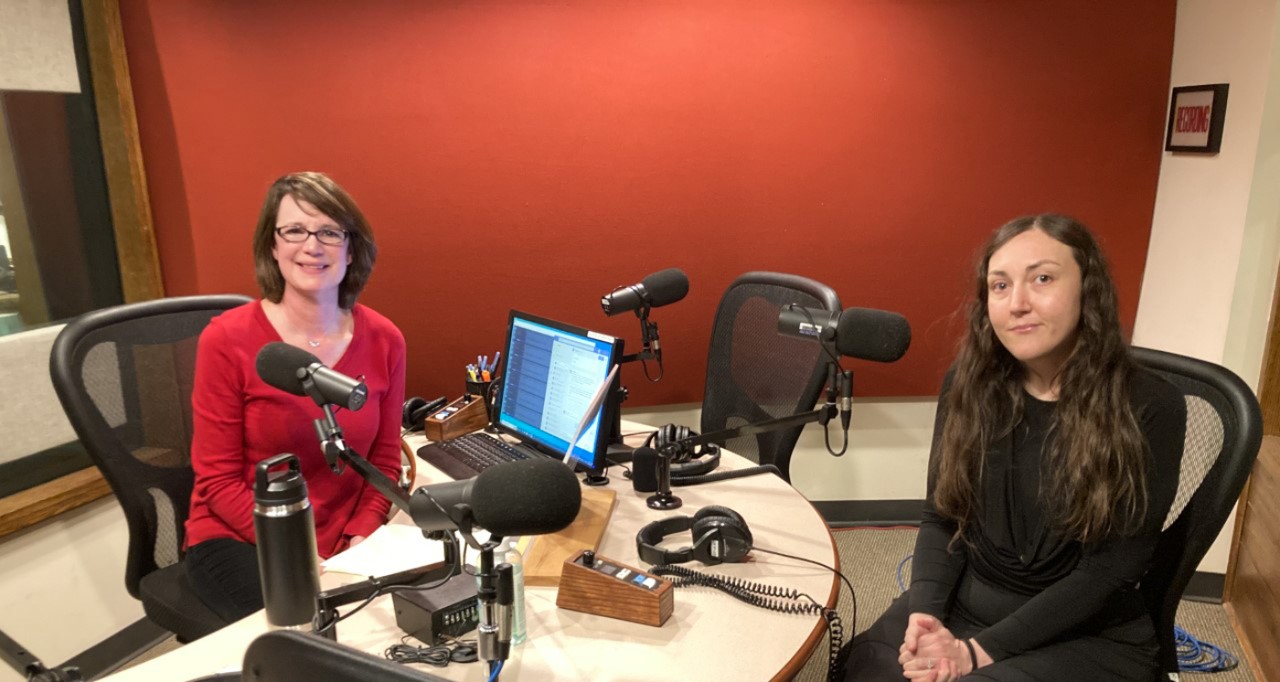
Wired: Therapy part of psychedelic therapy is a mess
UC researcher says tested therapy protocols are needed to protect patients
Wired turned to a University of Cincinnati postdoctoral researcher to understand shortcomings in new experimental therapies that use psychedelics.
UC College of Arts and Sciences research associate Neşe Devenot is co-author of a new opinion piece in the journal JAMA Psychiatry that argues that psychedelic-assisted therapies need tested protocols to prevent patient harm.
Some clinical studies have reported serious adverse events among patients in psychedelic trials that include abuse, self harm and dependency.
“A lot of the ideas that are taken for granted about the way psychedelic-assisted therapy works are not evidence-based. They’re not ideas that are rooted in any kind of traditional scientific evidence,” Devenot told Wired.
And the speed at which researchers are racing to get the therapy out to the masses means that the time to scrutinize this component is running out. “They’re building the airplane while they’re flying it,” she says.
Devenot, who works in UC's Institute for Research in Sensing, was a guest on WVXU's Cincinnati Edition to discuss the growing interest around psychedelics. She spoke to Cincinnati Edition host Lucy May about the risks and potential rewards of psychedelics to treat a wide variety of mental health issues.
Devenot was co-author of a study in the Kennedy Institute of Ethics Journal that found psychedelics might help people change unwanted behaviors by helping them reinvent their perceptions of themselves.
UC researchers re-examined a smoking-cessation study that asked participants to write about their experience with psilocybin in conjunction with clinical treatment to quit smoking. They found that psychedelics combined with talk therapy often helped longtime smokers see themselves as nonsmokers. This new core identity might help explain why 80% of participants were able to stop smoking for six months and 60% remained smoking-free after five years.
“It wasn't just psilocybin,” Devenot told Cincinnati Edition. “Clinical trial leaders and clinicians were suggesting that the participants were at their root a nonsmoker. They were encouraging that shift in perspective.”
Devenot's colleague Allen Davis, director of Ohio State University's Center for Psychedelic Drug Research and Education, also joined the show to discuss its potential and the legal and political environment that makes studying psychedelics a challenge.
Featured image at top: Lucy May, left, host of WVXU's Cincinnati Edition, talks to UC postdoctoral research associate Neşe Devenot about psychedelics. Photo/Michael Miller
More UC research in the news
- Neuroscience News: Psychedelics may help people reinvent themselves
- New York Post: Psychedelics could transform cigarette addiction treatment
- Medical Xpress: Psychedelics may help people reinvent themselves
Related Stories
History Department Lecture
January 9, 2002
Lecture by Allan W. Winkler, Miami University, Oxford on "Urban America in World War II: Cincinnati as an example" at the Cincinnati Museum Center at 7:30pm.
UC Research Ranking Climbs
January 10, 2002
The University of Cincinnati moved up in two different national rankings established by the National Science Foundation (NSF) to compare college and university research efforts.
History Department Lecture
January 17, 2002
Lecture by Leslie Adelson, Cornell University, will deliver a Taft lecture titled "Back to the Future and Beyond 'Two Worlds':Turkish Lines of Thought in Contemporary German Literature and Memory Work" at 3:00pm in the Max Kade German Cultural Center in Old Chemistry.
New Appointments in McMicken Administration
January 21, 2002
The college is very pleased to announce two new appointments.
Sign Up for the Discovering A&S Elective
January 24, 2002
Parent's Asking, "What does someone do with THAT major?" Don't know all your options? Sign up for a 2 credit hour elective where you can meet A&S faculty, emeriti faculty, as well as, alumni.
Three of Four UC Fulbrights Scholars from McMicken
January 28, 2002
Tainted water supplies in Bangladesh, international security and missile defense, transformations in Mexico and greater understanding of India - this varied list sums up the work of four Fulbright Scholars at the University of Cincinnati who are concentrating on real-life issues involving our neighbors around the world.
Prominent Line-Up Examines Race in 2002 Ropes Series
January 31, 2002
The issue of race will receive one of the most intensive examinations undertaken in Cincinnati since the April riots when the University of Cincinnati Department of English launches its Ropes series in January and February 2002.
Nominate a Distinguished Alumni
January 31, 2002
The Purpose of the Distinguished Alumni Awards is to recognize graduates of the McMicken College of Arts and Sciences for outstanding achievements.
UC Physicists Play Important Role in Experiments That Provided New Understanding of Neutrinos
January 31, 2002
Three physicists at the University of Cincinnati played a key role in recent experiments which provided a surprising new understanding of a tiny subatomic particle known as the neutrino.
Angelene Jamison-Hall: Publishing Award
February 13, 2002
An unpublished novel by Angelene Jamison-Hall won first place in the new writing contest sponsored by River View Publishing in Riverside, Iowa.
